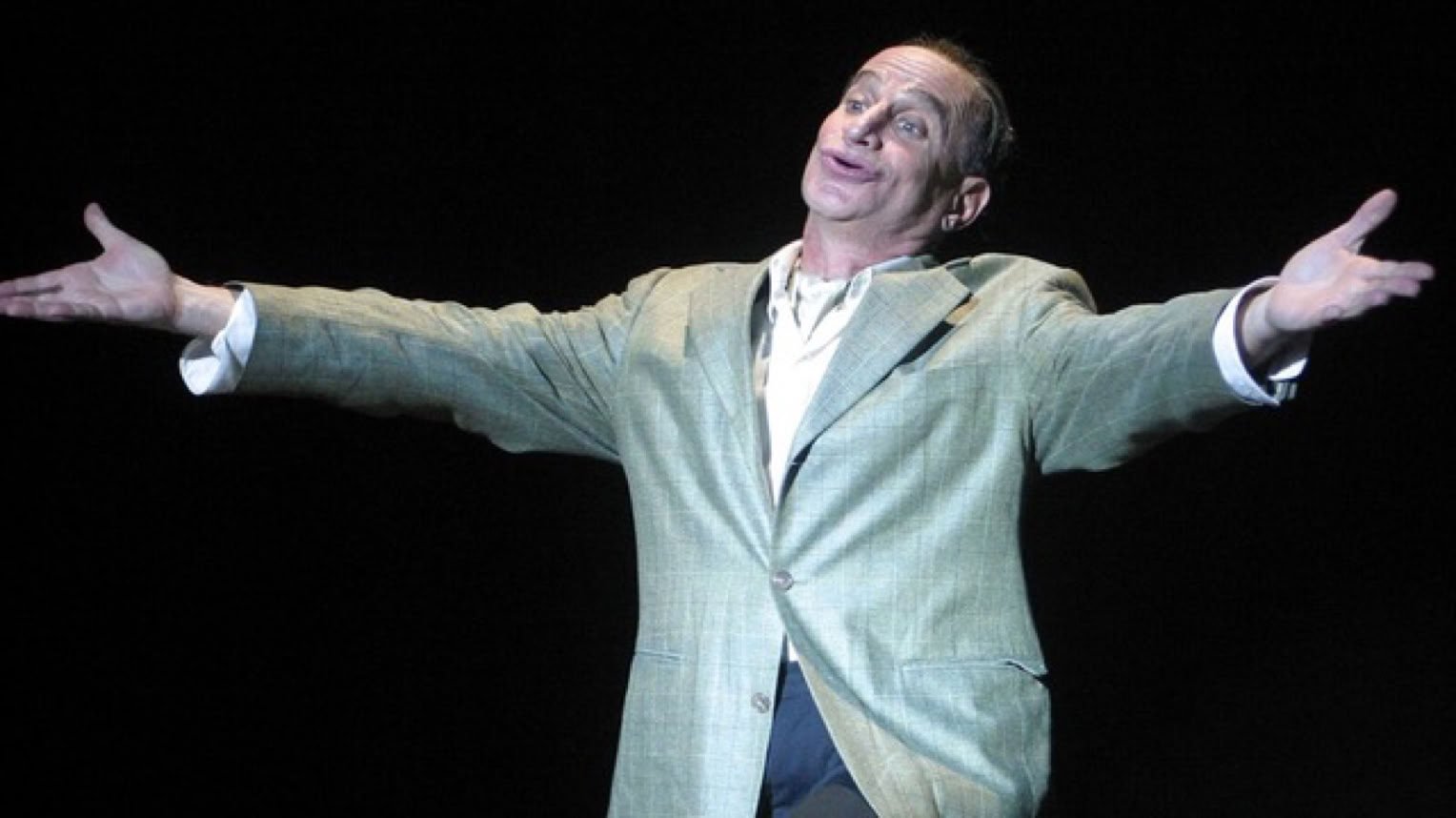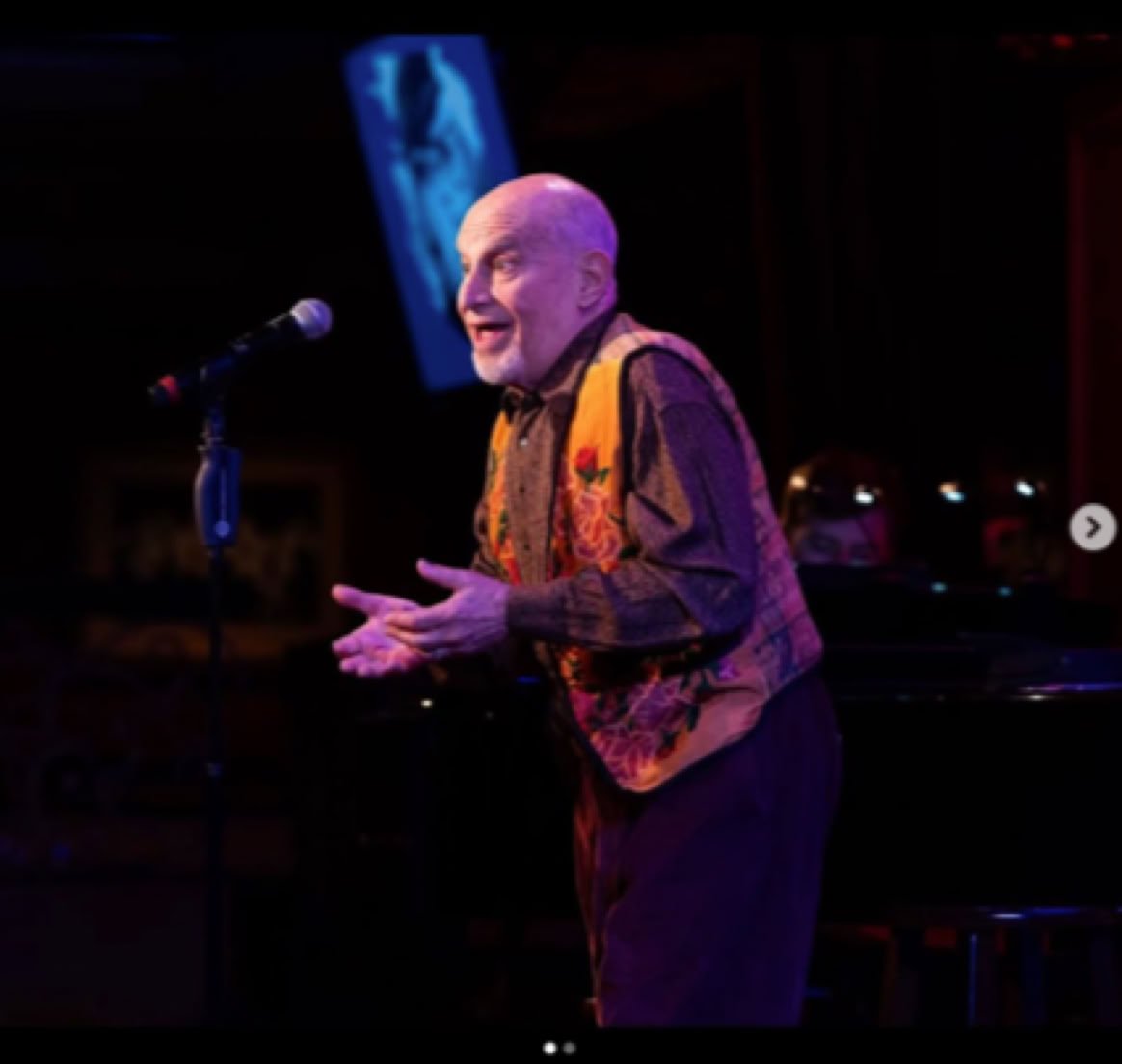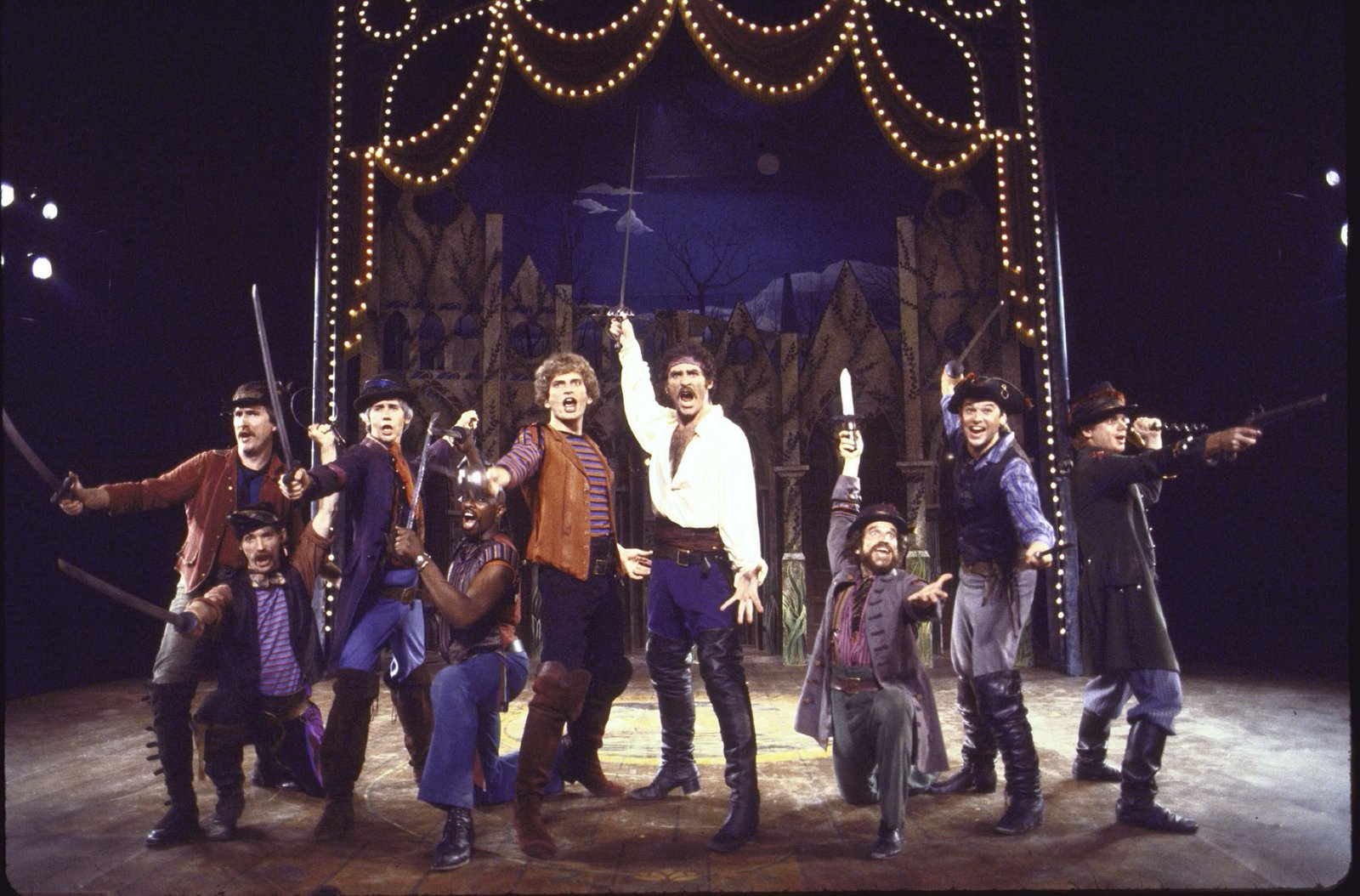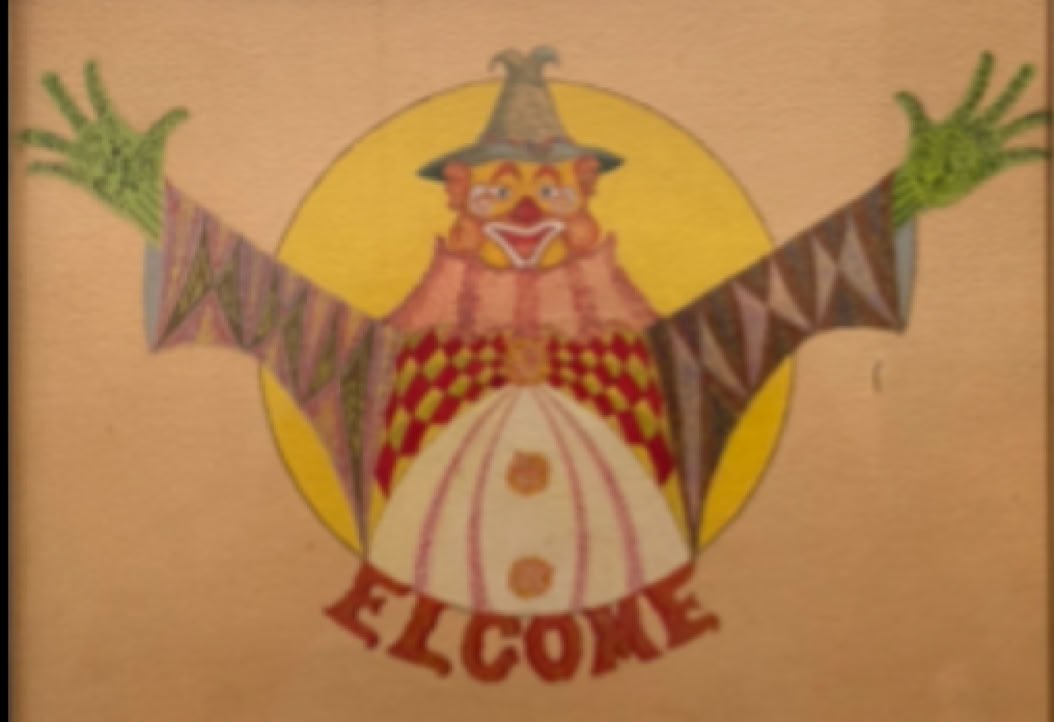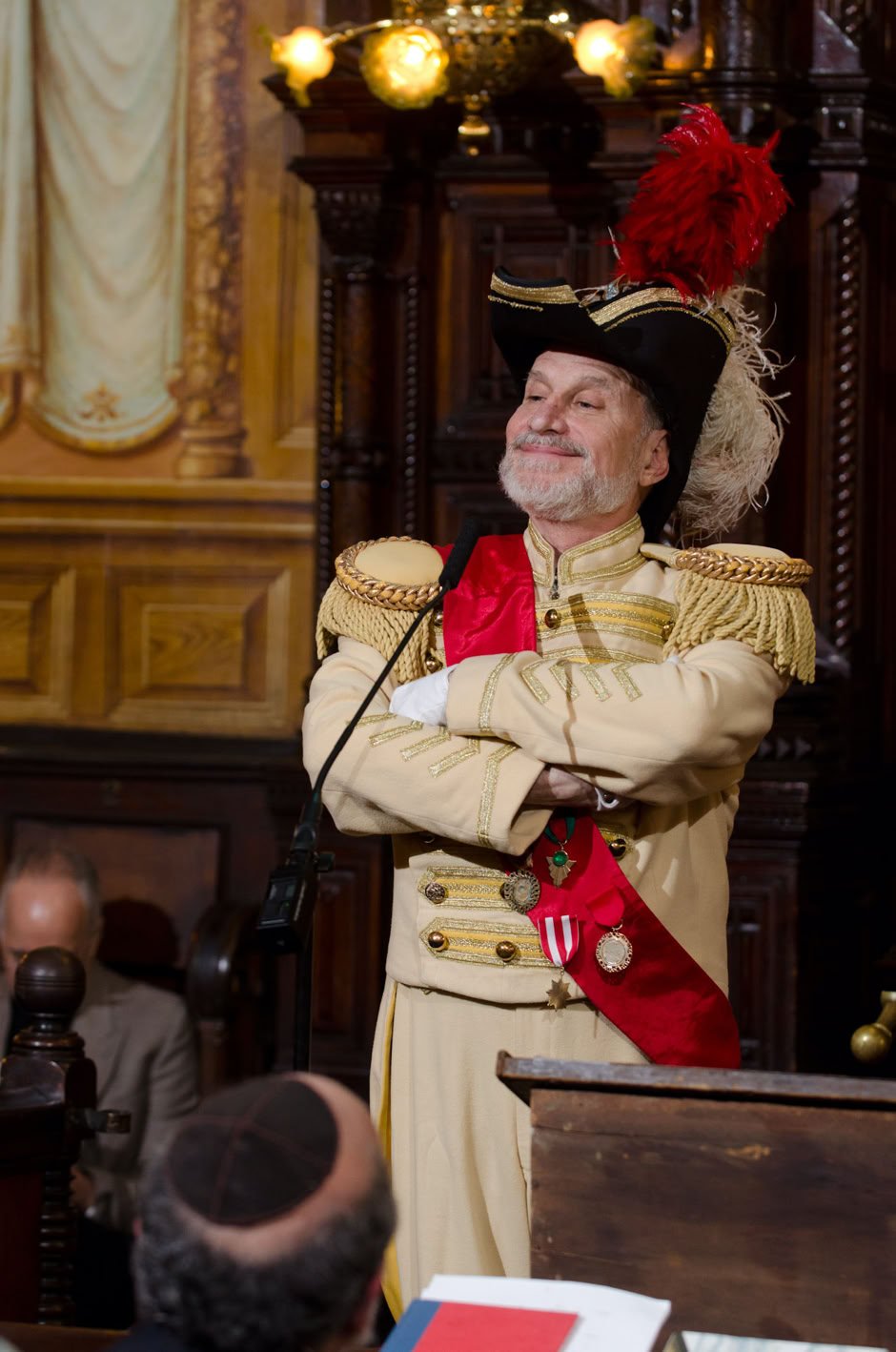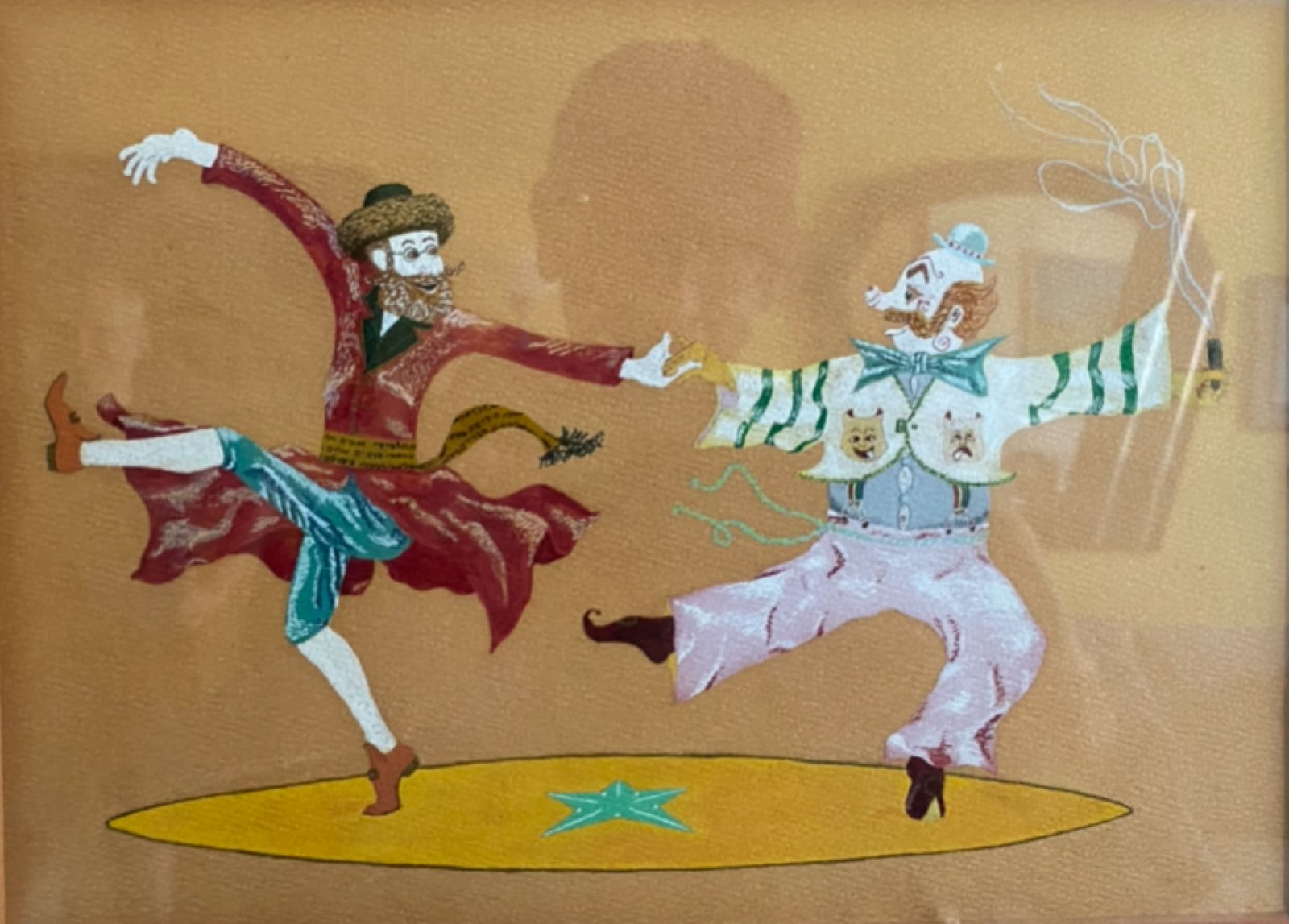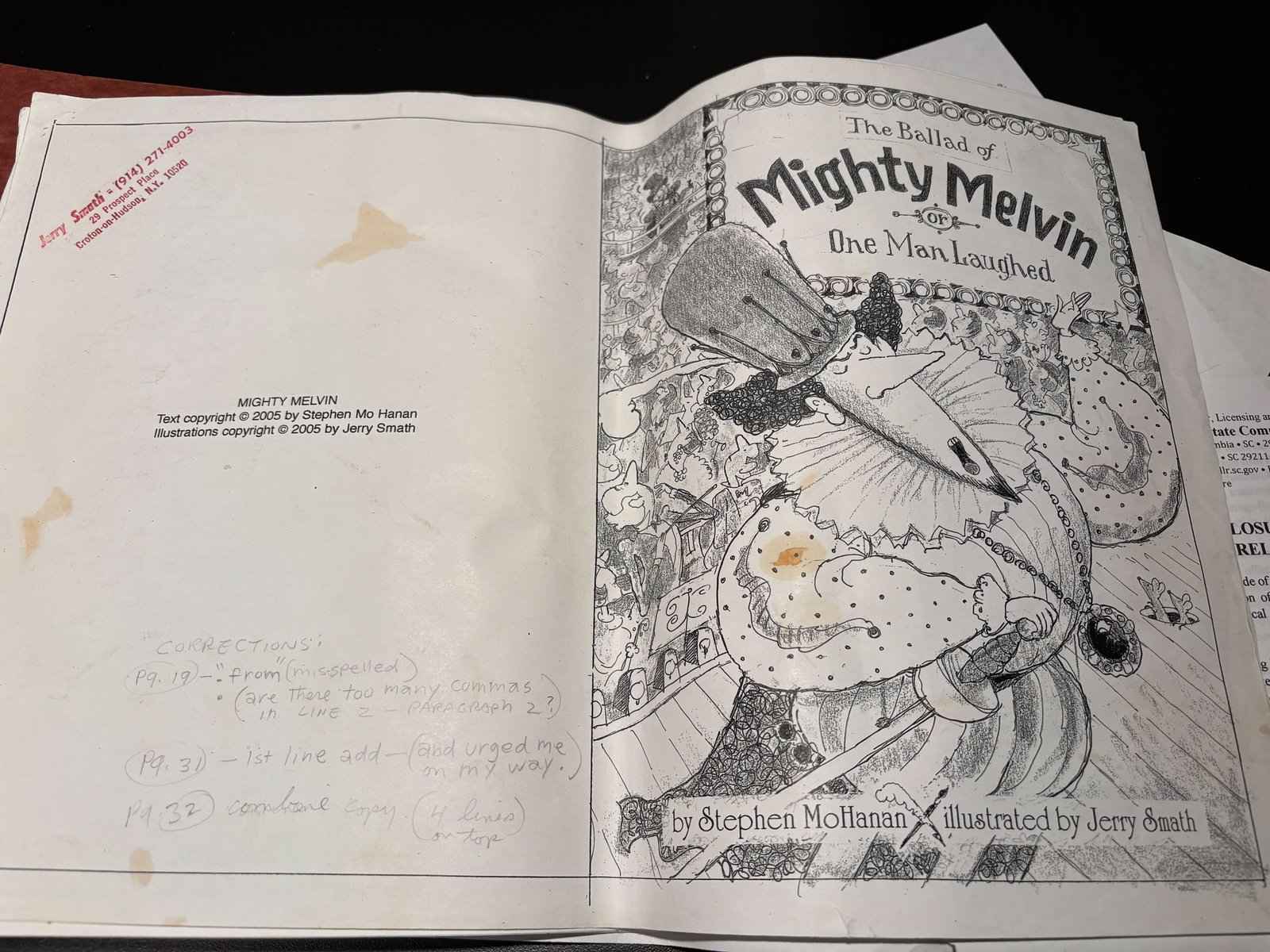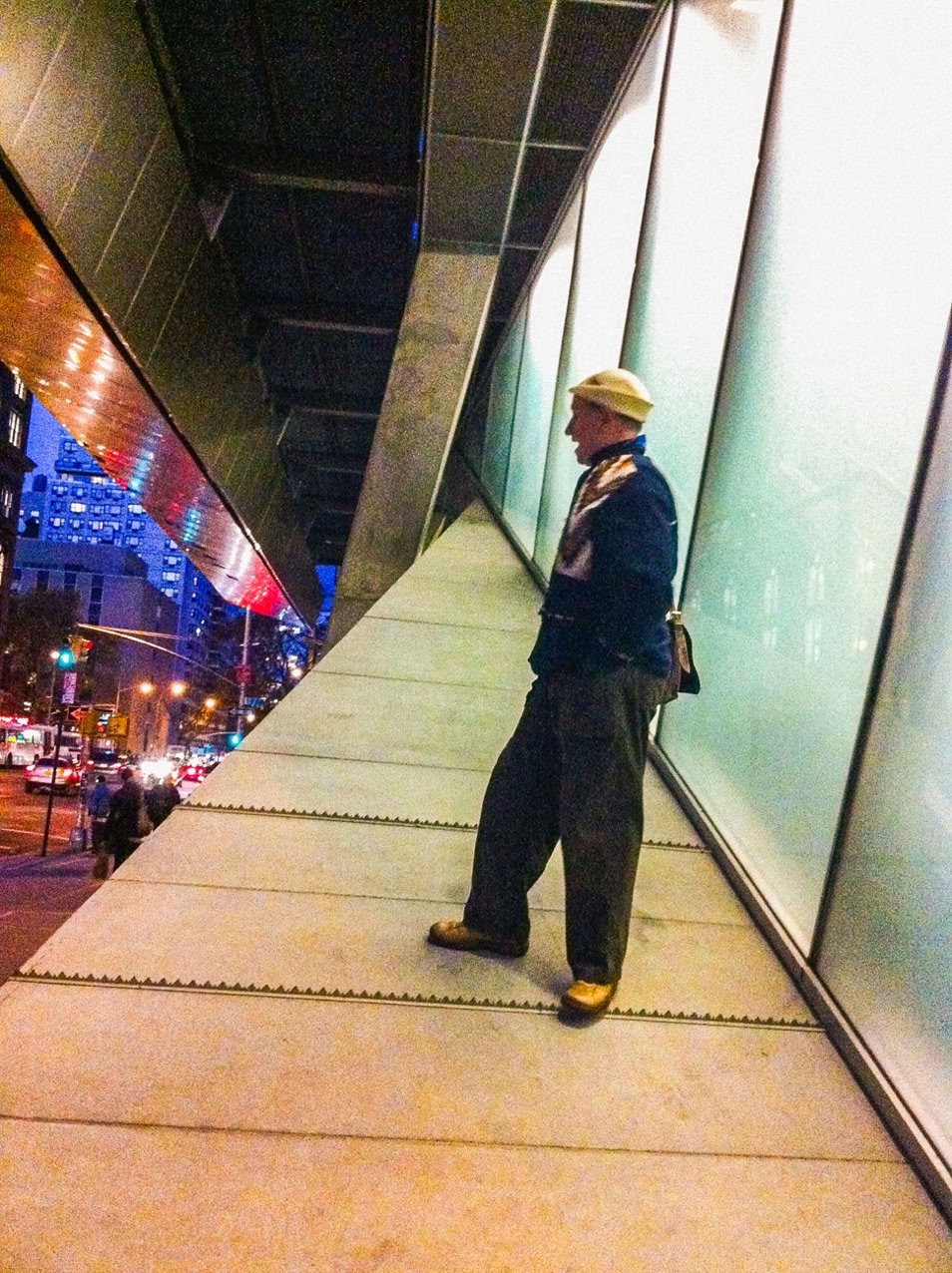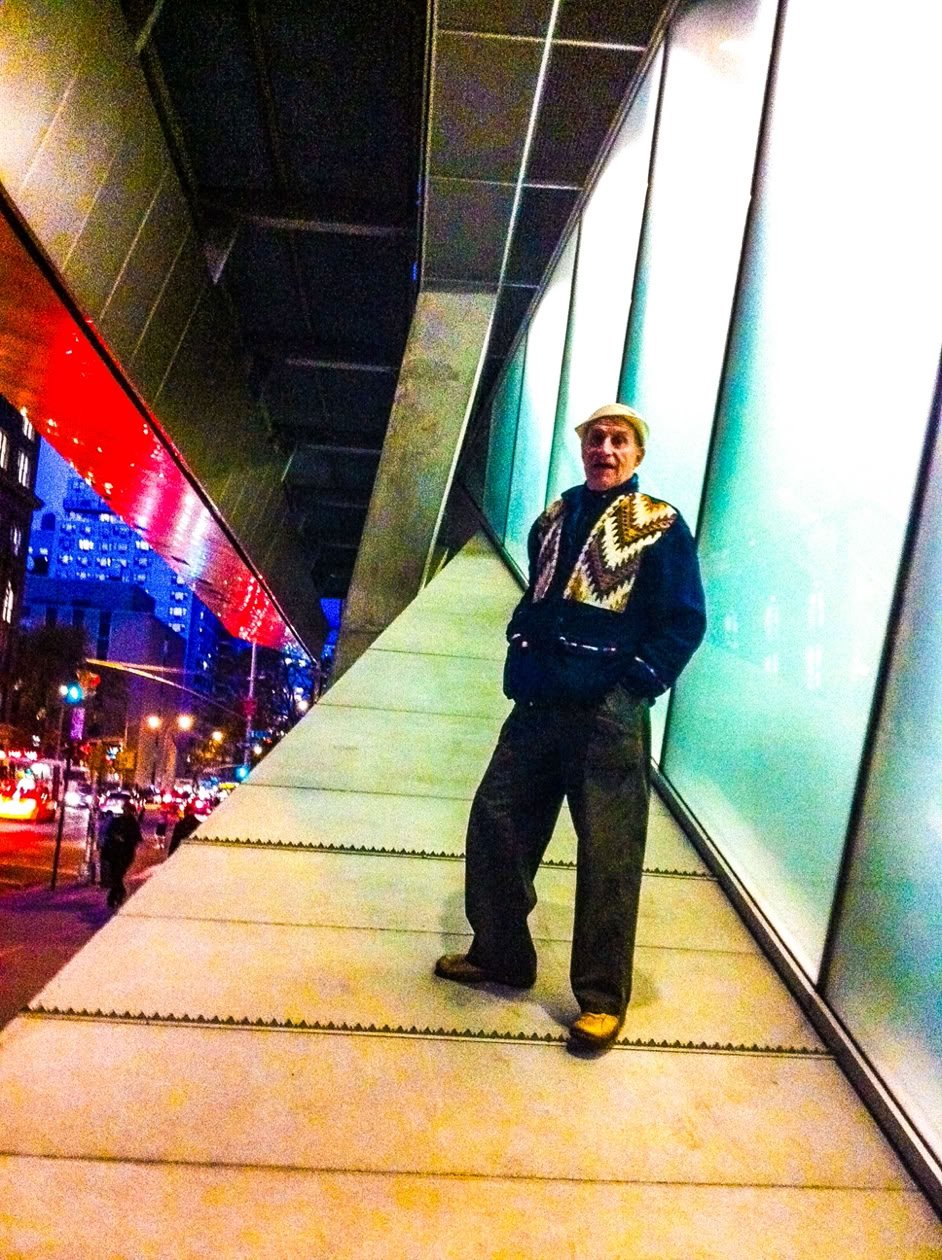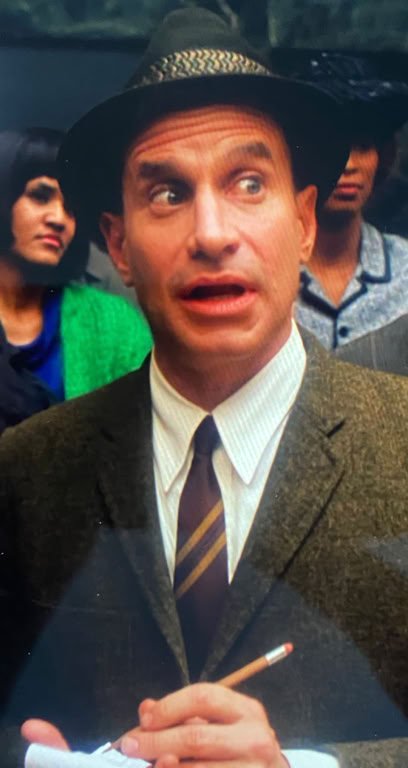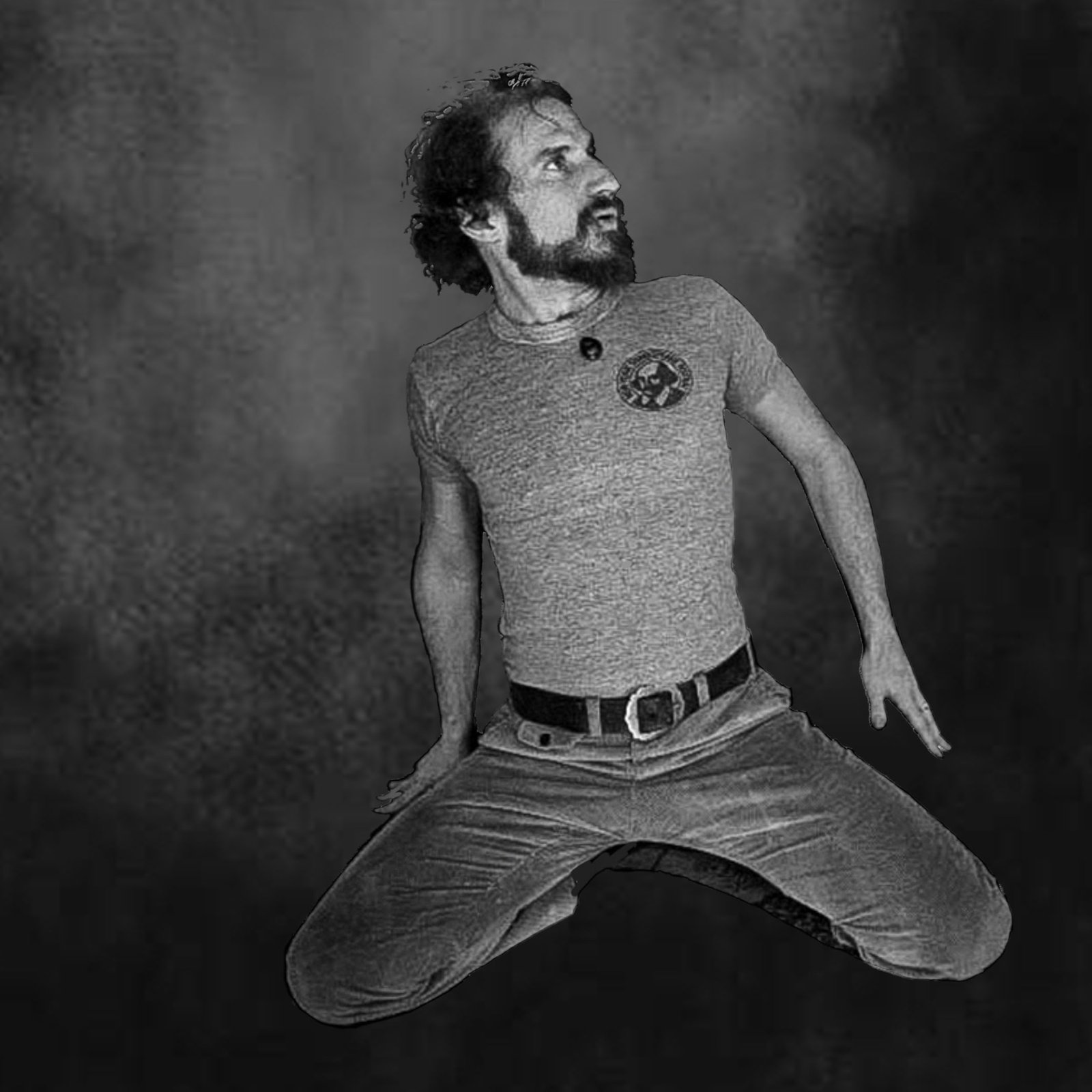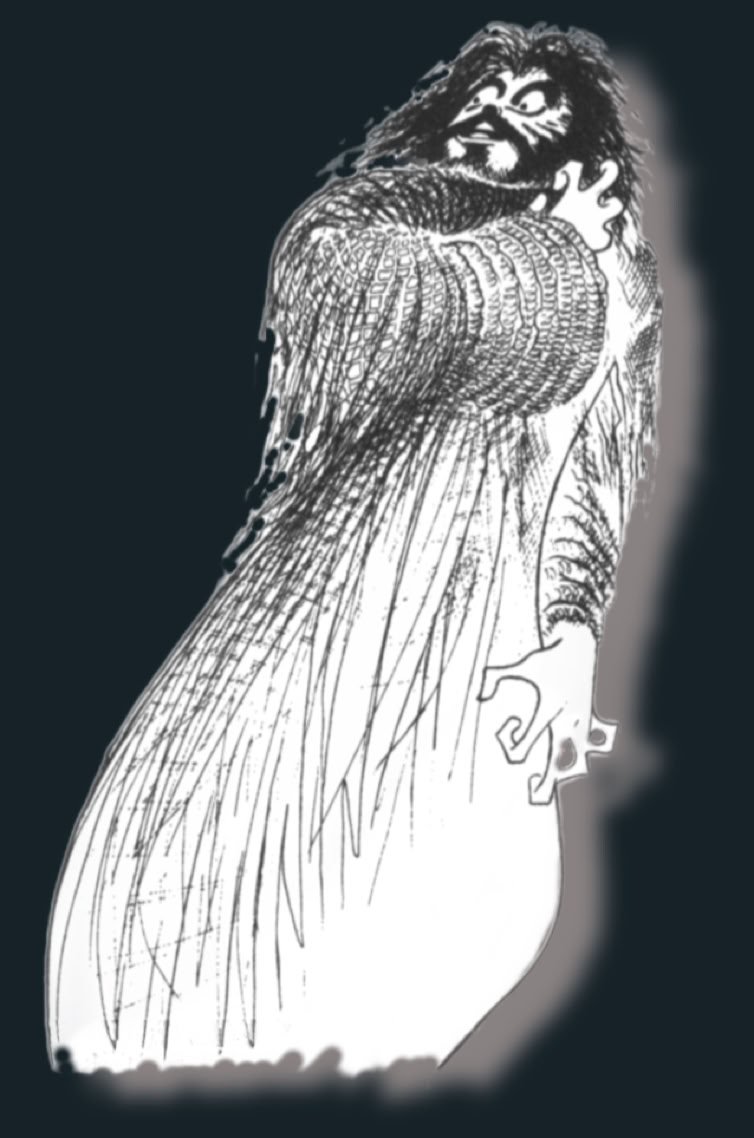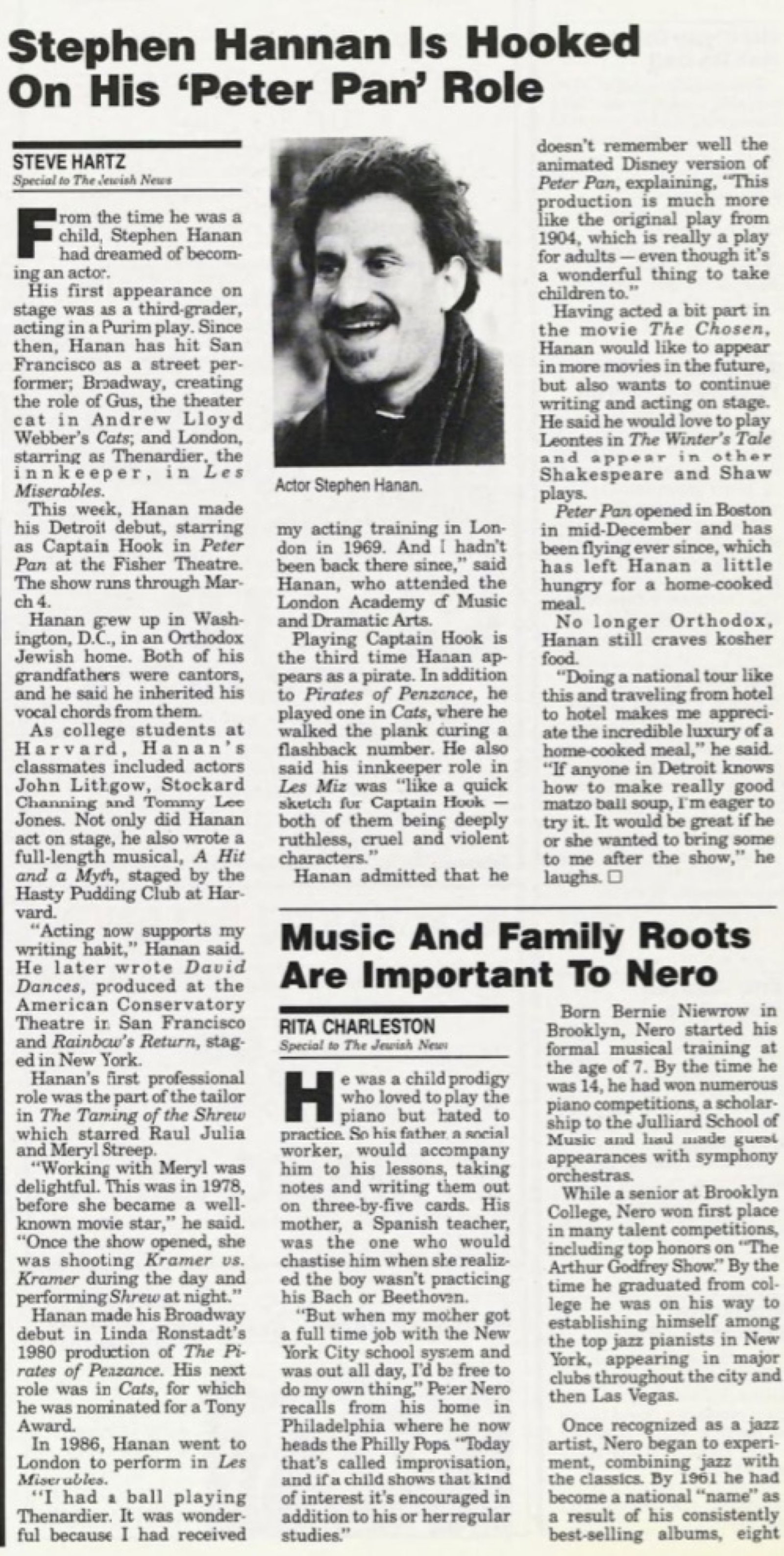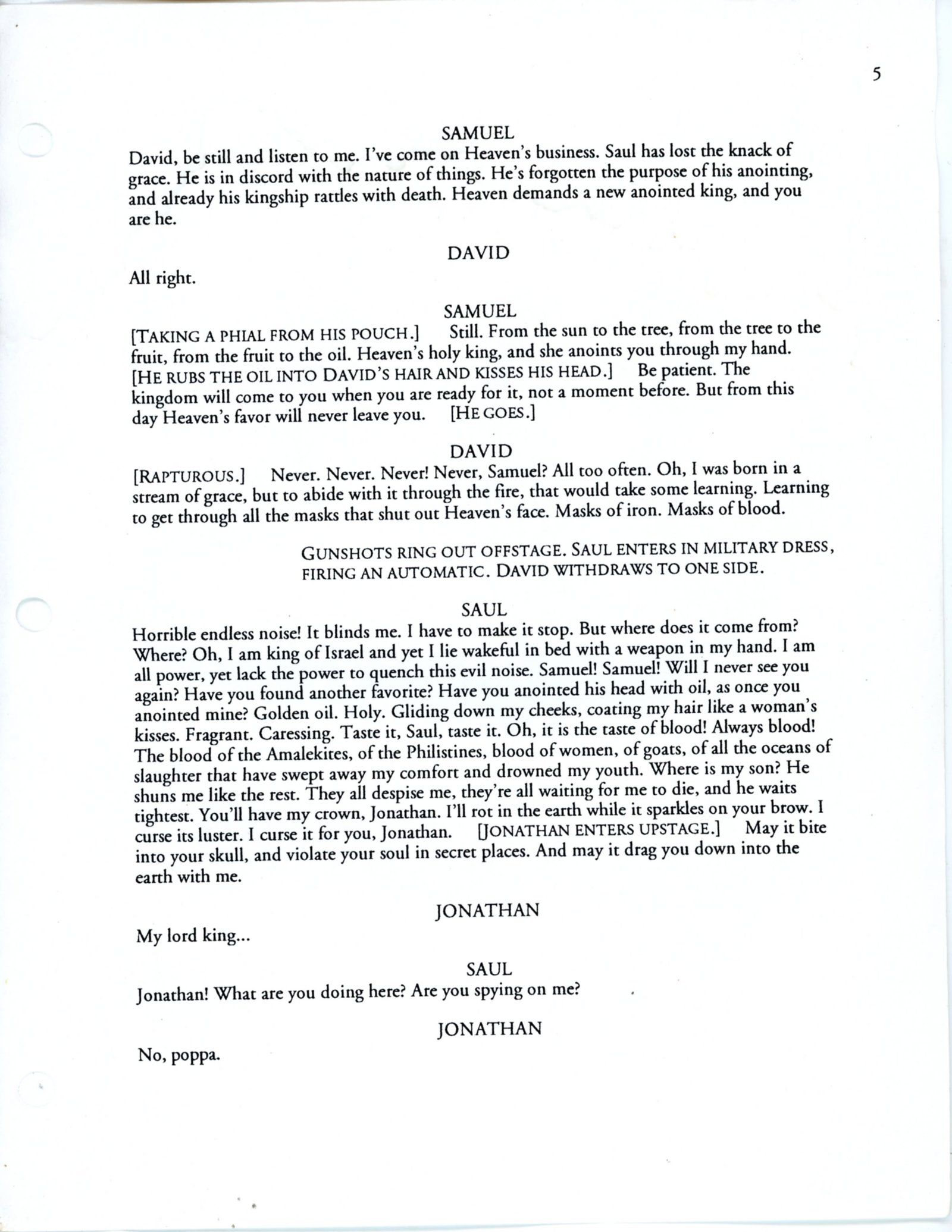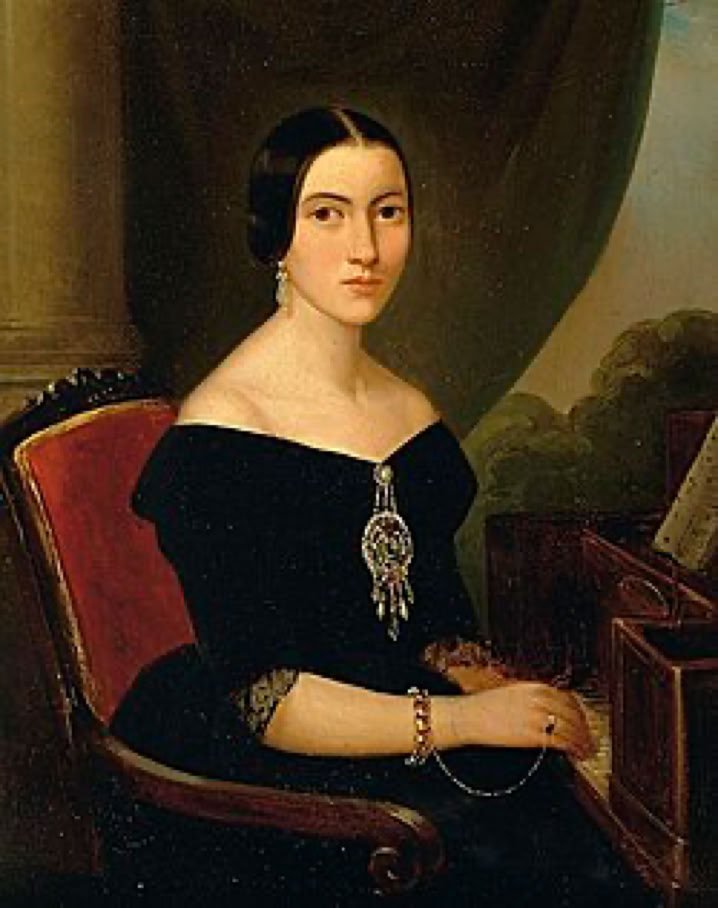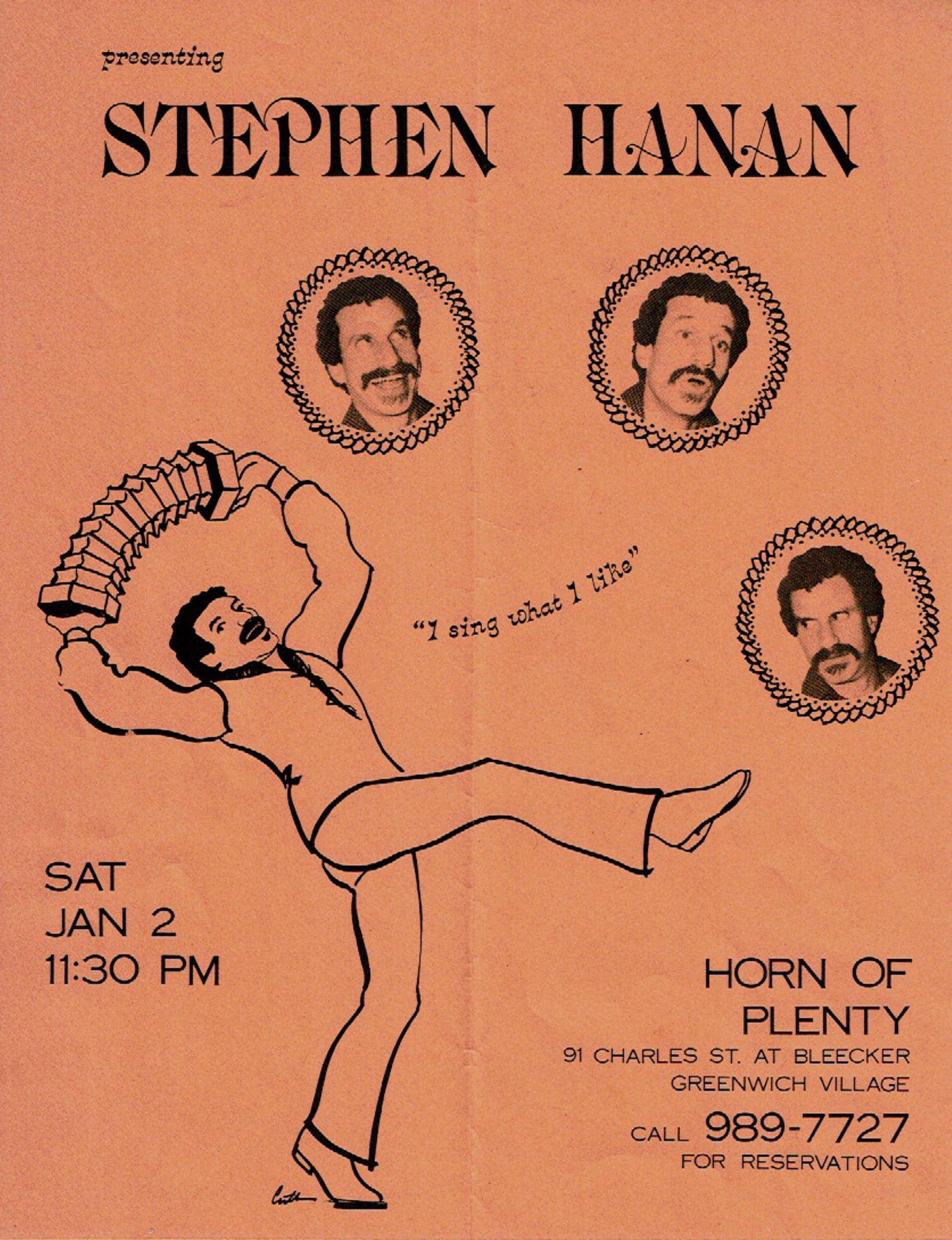September 2025
Letter from Gary
Hi Everyone -
My trip draws closer. Good wishes to everybody.
Mo's ashes will be scattered at the Broadway Pier near the Ferry Building in San Francisco. We will meet at the Vaillancourt Fountain at the foot of Market and then walk over to the Pier. This will take place on Wednesday, October 1 at 11:00am. If you need to go directly to the Pier, please meet us there about 11:15am.
Some good friends of Steve's and mine are Terry and Mary Vogt. They have graciously offered for everyone to gather at their house after the ceremony. The address is 777 4thAvenue. The cross street is Fulton. It's right off Golden Gate Park. Terry and Mary suggest people come over to the house about 1:00pm. Please let me know if you'll be coming to their house so we can plan accordingly.
Thank you, everyone, for your love and support through this difficult time. Mo's heart was definitely left in San Francisco. I look forward to seeing and being with all of you.
With love,
Gary
November 11 2025
The September Tour was epic for everyone involved. The ashes were spread, yet the journey goes on and the San francisco tour is there for you, at any time. We hope that taking and contemplating the virtual tour here has been valuable in general, for, as you shall see, it is essential to fully understanding the life and the meaning of Stephen Mo Hanan. Now on to the bright lights of Broadway.

STEPHEN MO HANAN
Hanan is a given name of Hebrew origin meaning "gracious" or "grace". It can also be a name in Arabic, where it means "compassion" or "affection". There are also various notable people named Hanan, including a Japanese professional wrestler, a Lebanese author, a Palestinian legislator and an American Actor/Playwright/Poet and activist .
FRIENDS WORDS

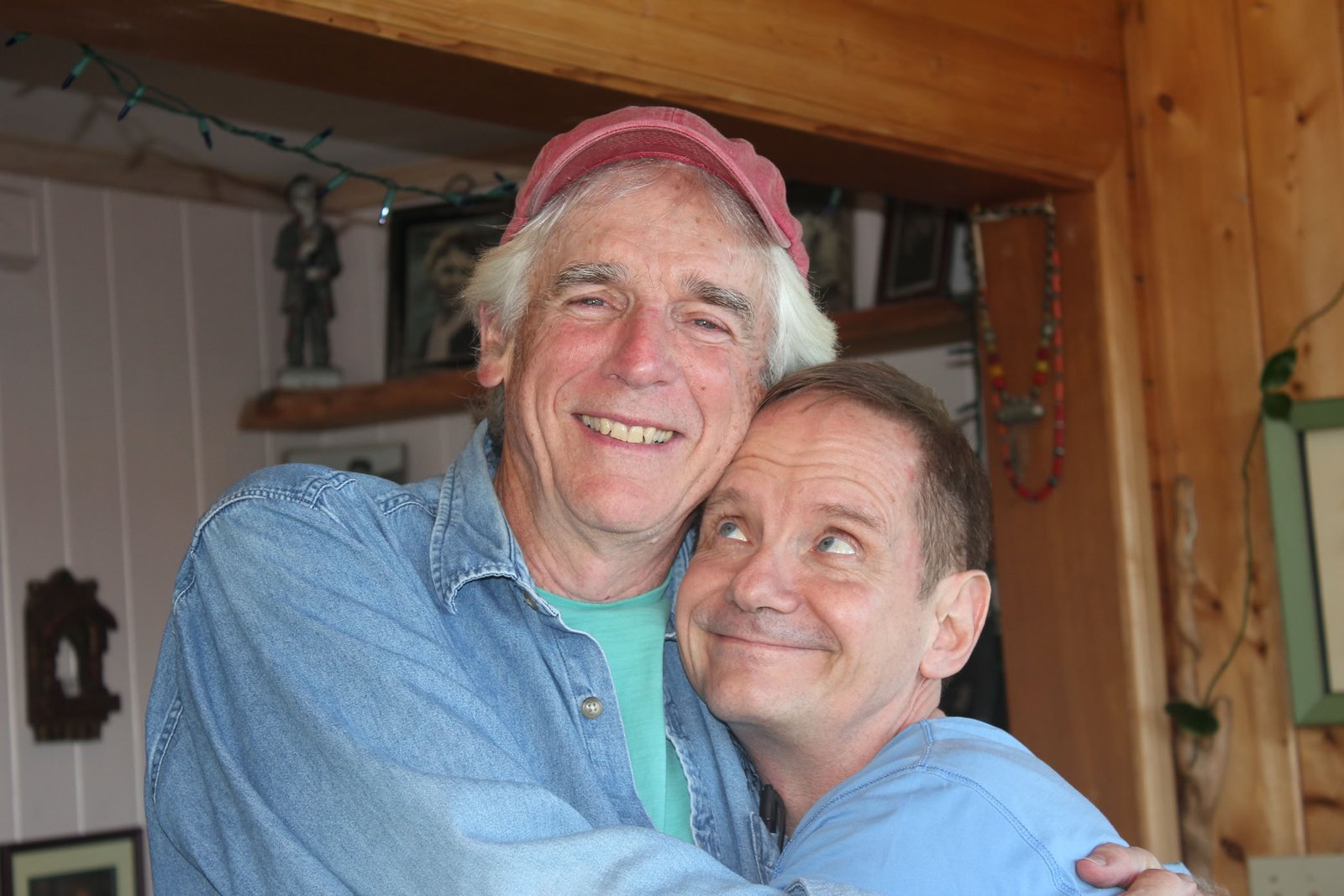
Howars Cutler with Gary Widlund
page 1
Howard Cutlers thoughts
Steven “Mo” Hanan, actor, singer, author, playwright, composer, comedian – ever a stalwart believer in our human ability to exchange self-destructive confusion for spiritual emancipation – made his sudden final exit on Thursday evening, April 3, 2025.
78 years old, he had the good fortune to be conversing in bed with his best beloved when his final cue was called.
The trajectory of his career carried him from engaging, then beguiling tourists forced to wait in line for San Francisco’s Sausalito Ferry, to playing featured parts and starring roles in hit musicals on the Broadway stage, London’s West End and in theatersacross the country.
He wrote plays and musicals, as well, and several were produced – in San Francisco, New York, Florida, the UK, and elsewhere, but it was his live performances that brought him the widest acclaim. Blessed with an adrenaline- rousing yet appealingly warm baritone and an innate sense of comic timing, he caught the attention of composer Andrew Lloyd-Webber and director Trevor Nunn who put him in the original Broadway cast of Cats. Lloyd-Webber then wrote him a show-stopping set piece – “Growltiger’s Last Stand”– which they inserted into the show for its Broadway premiere. That won Hanan a Tony nomination.

Nunn and Producer Cameron Mackintosh next sent him to London to join the cast of Les Miserables and play the villainous innkeeper, Thénardier.
Hanan had first stepped into the Broadway spotlight with Linda Ronstadt and Kevin Kline in Joseph Papp’s 1981 hit-revival of The Pirates of Penzance. His role was the Pirate King’s Lieutenant and Second in Command, Samuel.
Later, in Jolson and Company, a musical play he co-wrote with director Jay Berkow, Hanan would spellbind audiences in New York and Miami with his uncanny re-incarnation of the complicated man who, as a jew performing in blackface, became America’s highest paid entertainer and its first “talking picture” star a century ago
With a cast of just three – Hanan as Al Jolson and two talented collaborators playing sixteen other people in Jolson’s life – the play received strong, positive reviews. New York Times critic Lawrence van Gelder wrote, “Riding on the vocal and actorly talents of Stephen Mo Hanan as Jolson and the splendid support of Robert Ari and Nancy Anderson [this] intelligent, informative and winning new musical biography does justice to the man and his music……brought cheers and applause from the audience.”
page 2
ACTOR/PLAYWRIGHT
Stephen Mo Hanan has departed in body. In this regard, we have lost one of the most remarkable humans this Earth has ever known. As our souls go from us every moment, like the waves upon the sea, the hand, voice, dance, the lyric, logic and rhyme of this resounding spirit will continue to raise us and move us forward forever sublime. When we first met in 1976 he was getting into a car to leave for the Airport. A fitting beginning given his sudden and unexpected final farewell. He took a piece of my heart then and so much more now, yet, what he gave in return was so infinitely WOW!
I took the photo above of Stephen In full sail in Cameron's Loft on White St. in 1979. He was goofing around, rolling around on the floor, tussling with and embracing a beautiful woman, relaxing after a number of actors had stopped by, done some more or less uncomfortable readings for parts in Steve’s play, David Dances, followed by back room analysis with surprising asides. Steve was so happy and so sharp, a time brimming with fantastic possibilities. I went to a reading/presentation at the Public Theater later that week, some presentation with open discussions with Papp and others. At White Street, I slept in the center of the grand shared/open space. Steve and Cameron had rooms. There was a telephone next to my bed (pre-cellphone era). I was awakened, late at night, by a call. It was Leonard Bernstein calling for Steve. The Sky was the limit.
David Dances, the teaser:
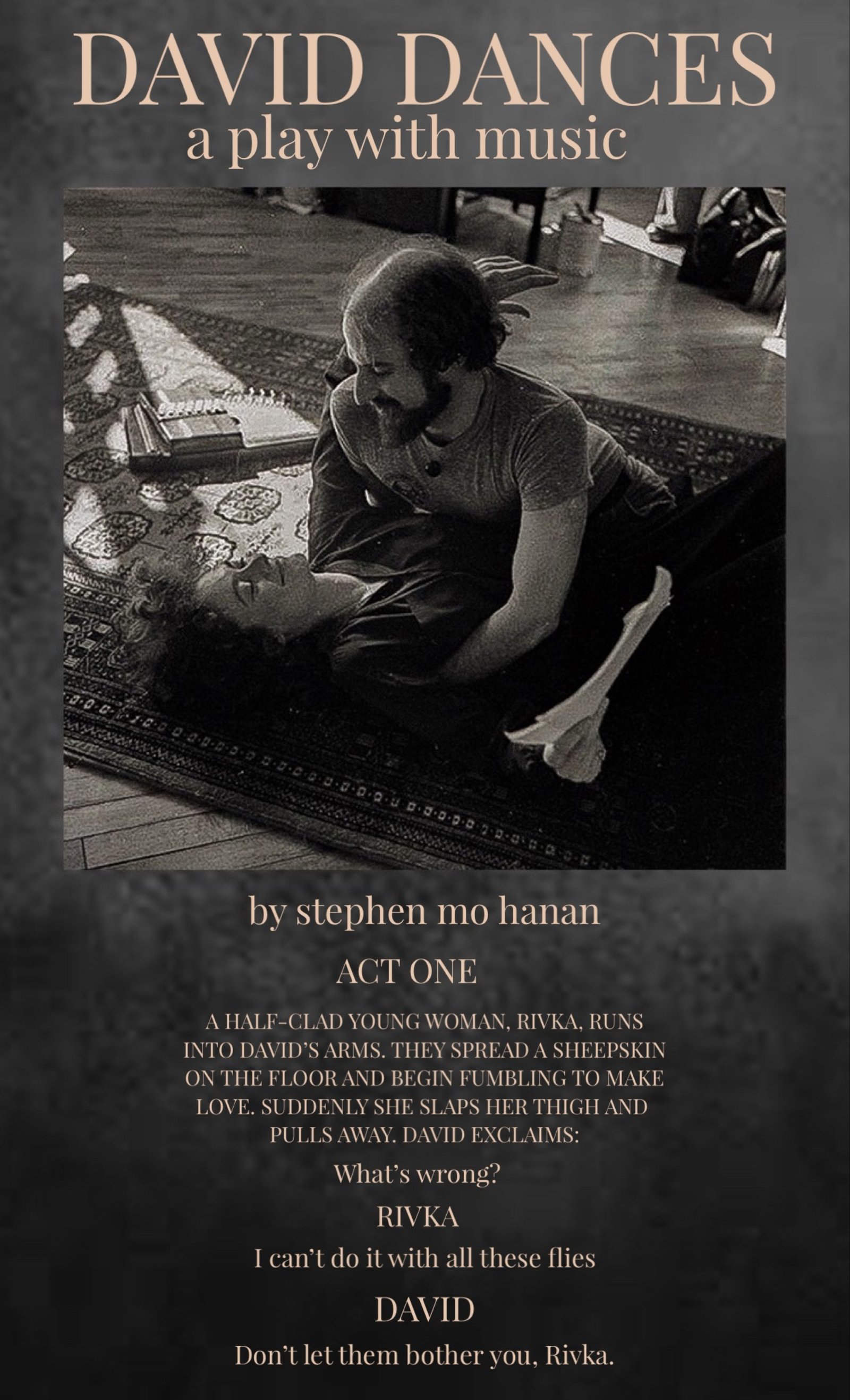
For various reasons, the Public Theater Production never happened but other productions did and for some context
and flavor:


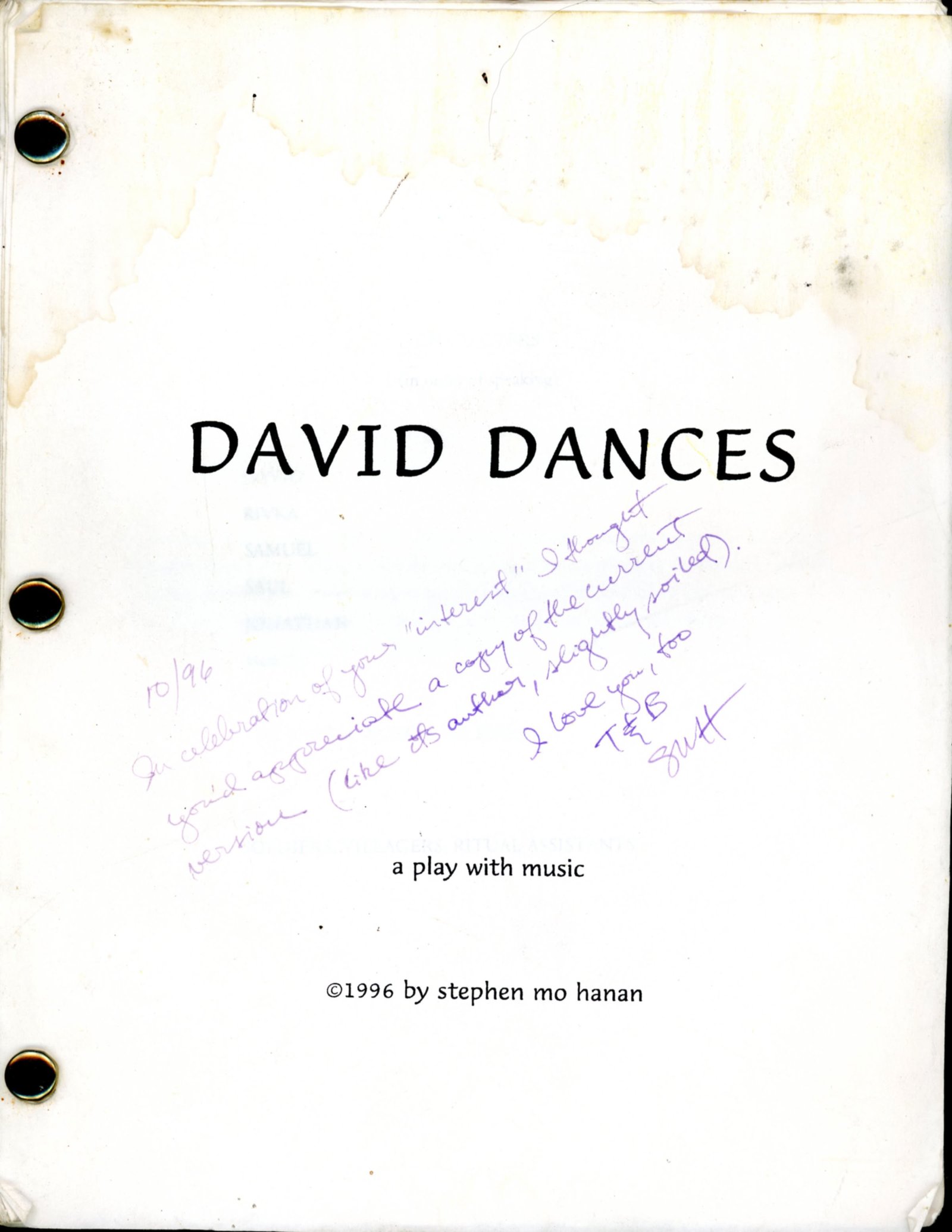

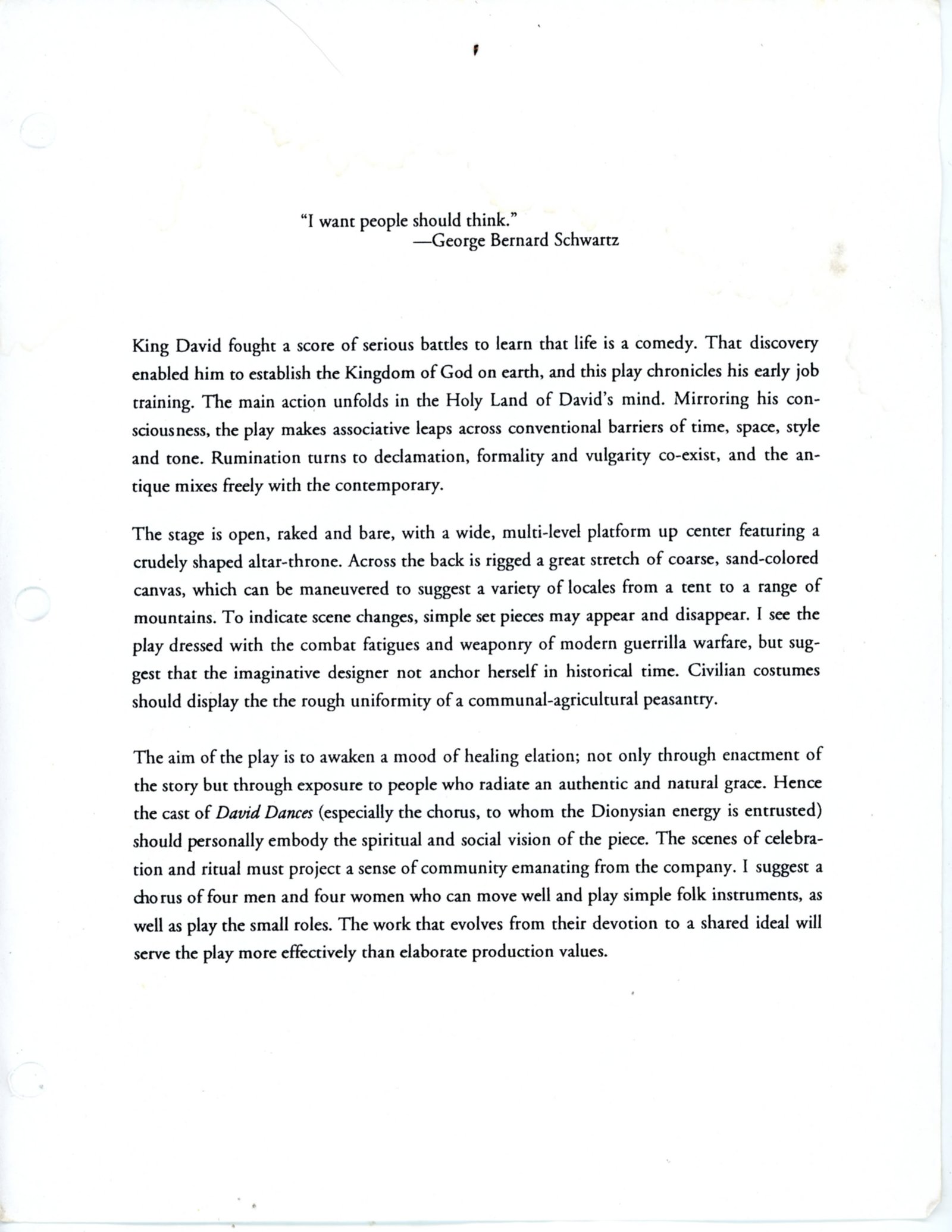
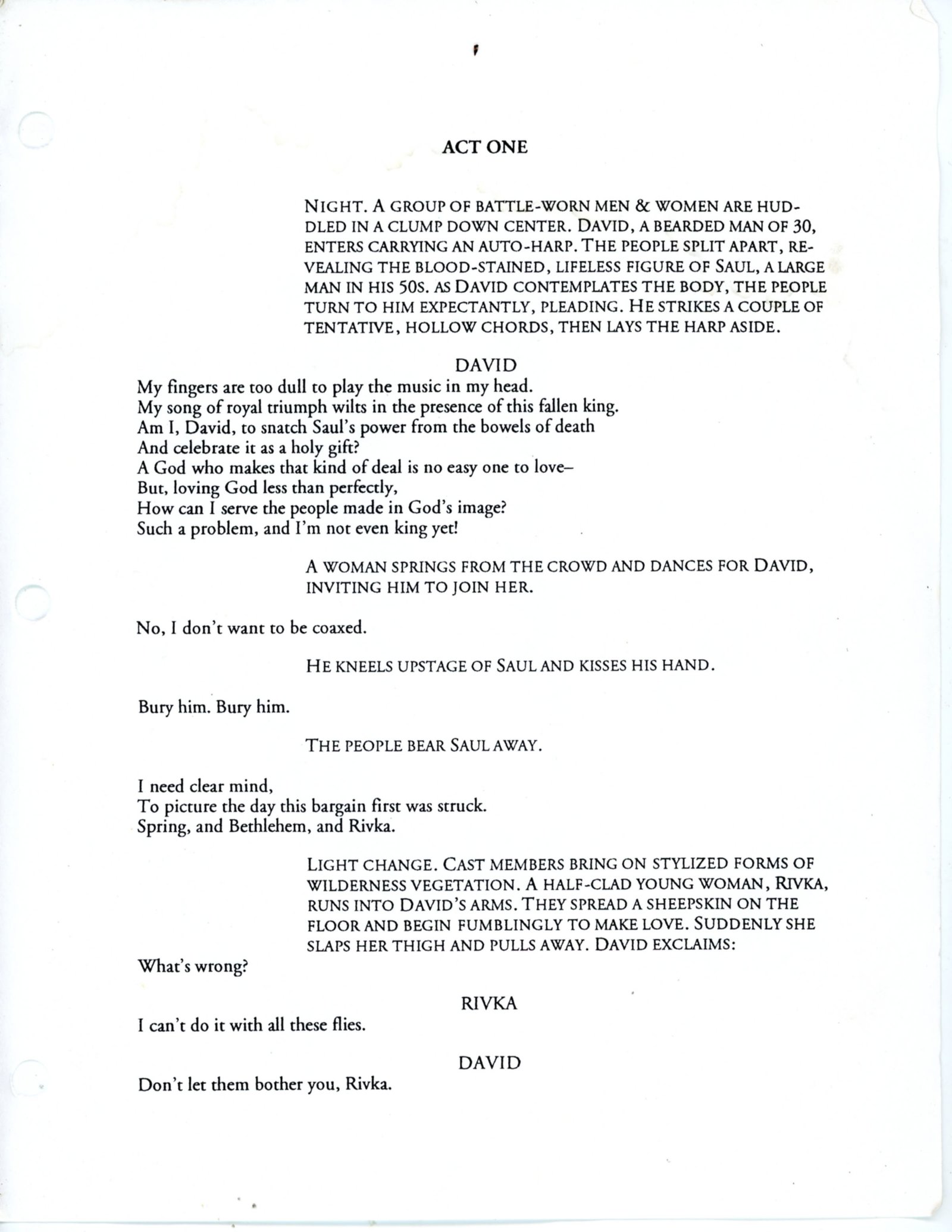
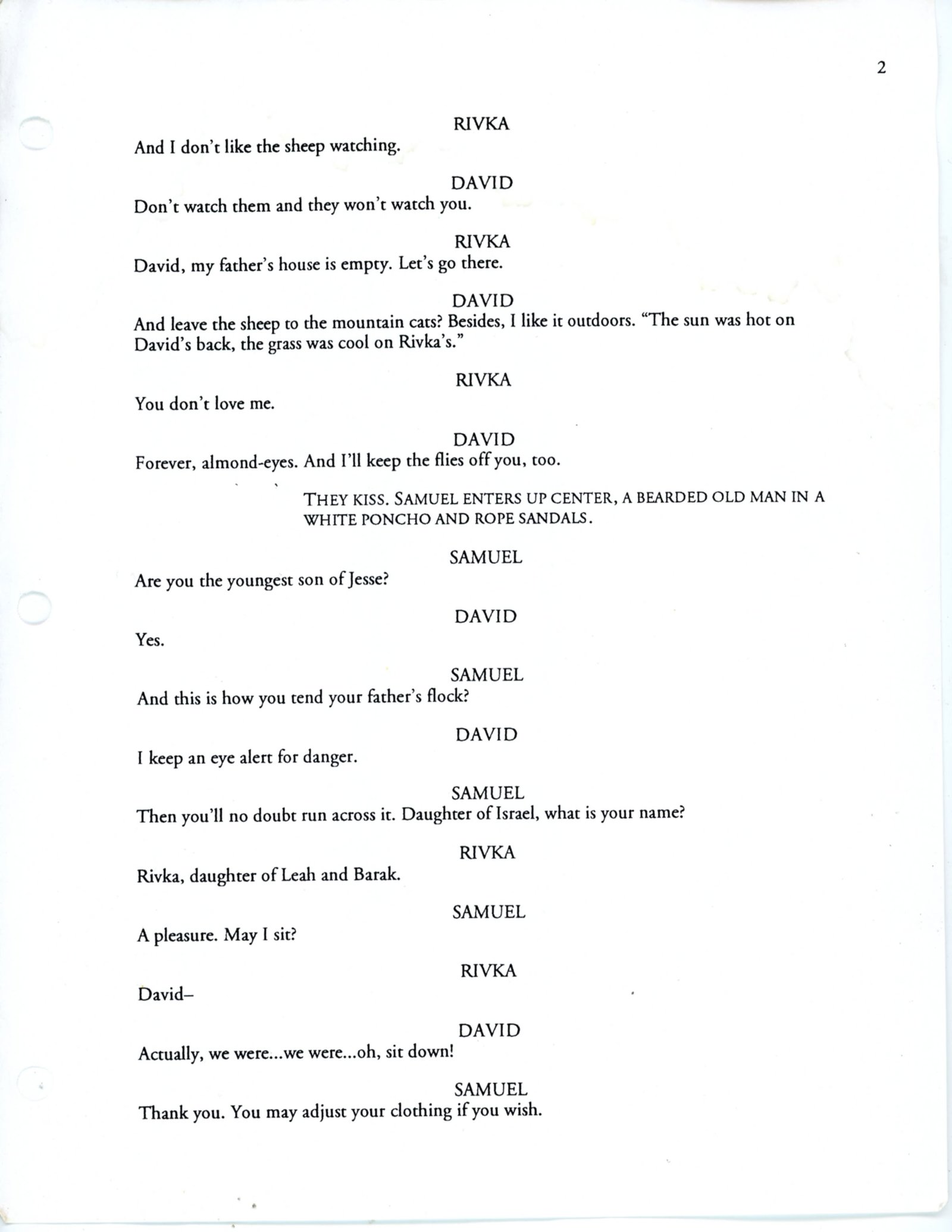
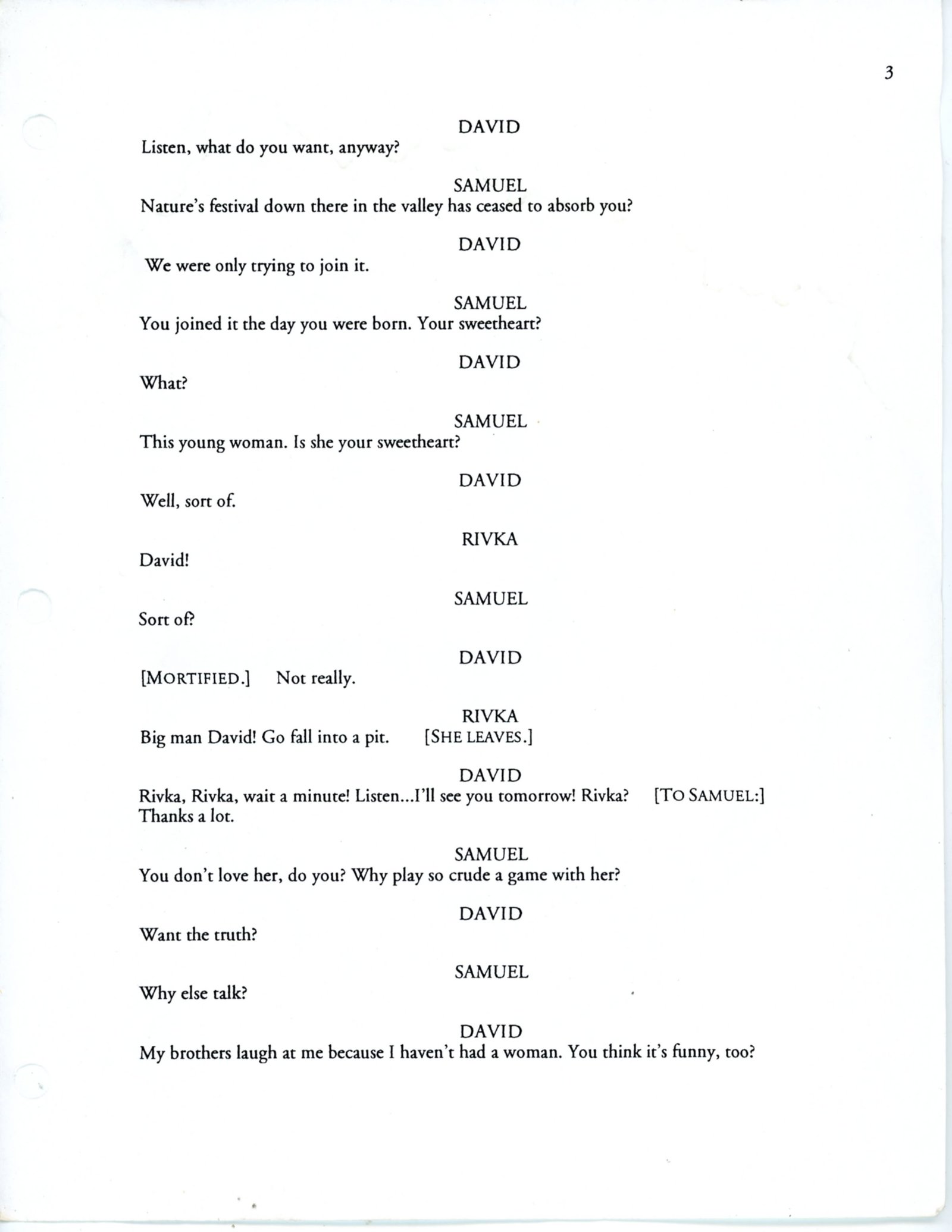
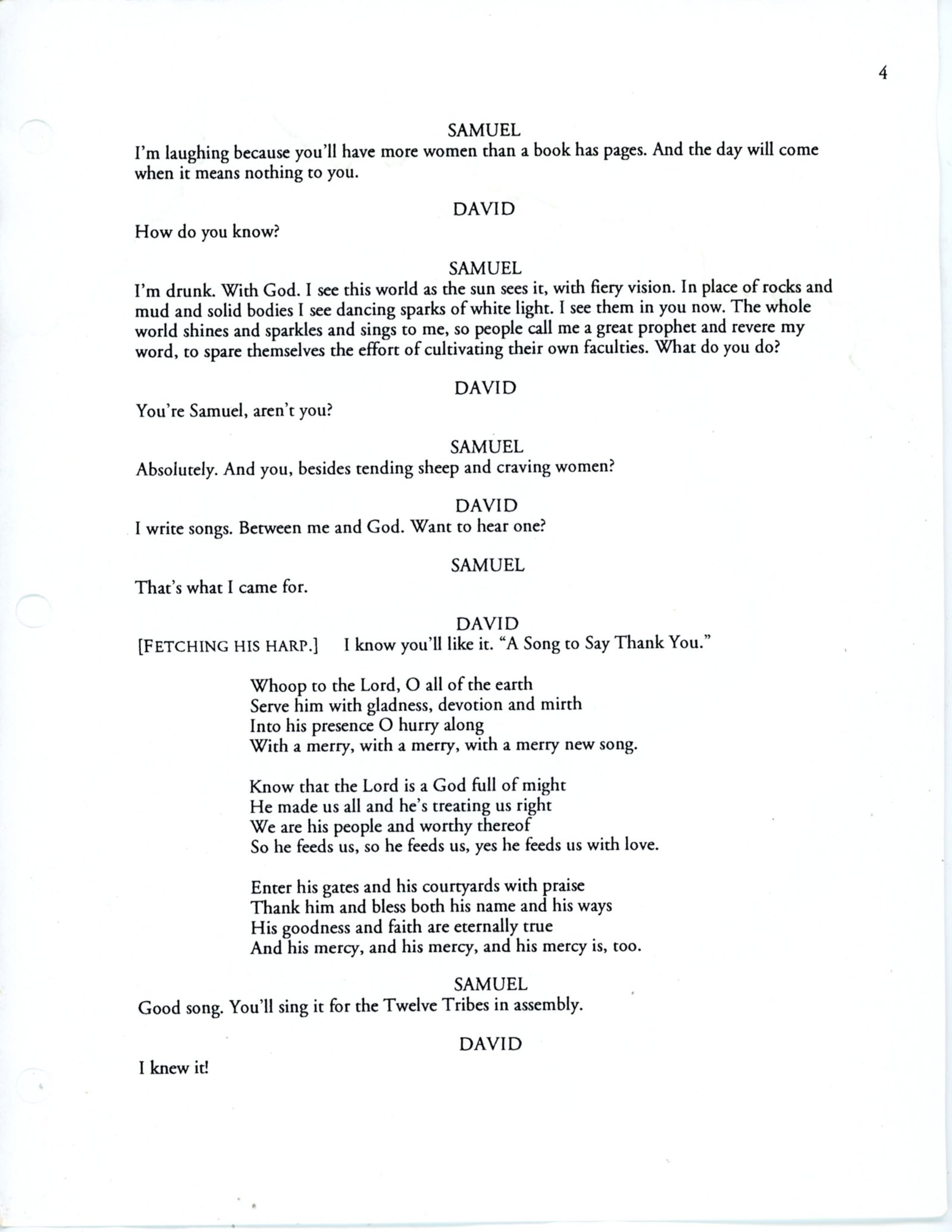
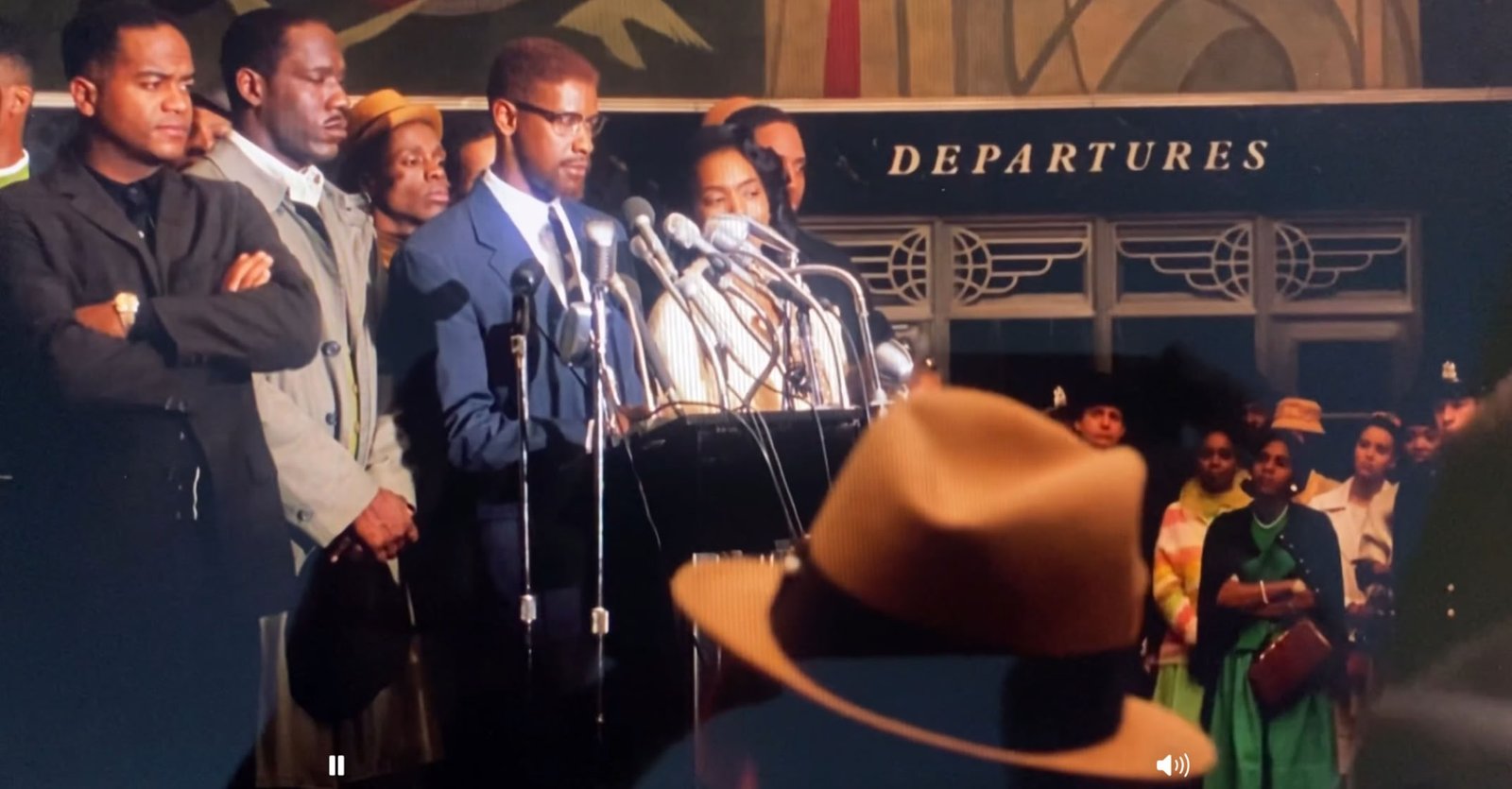

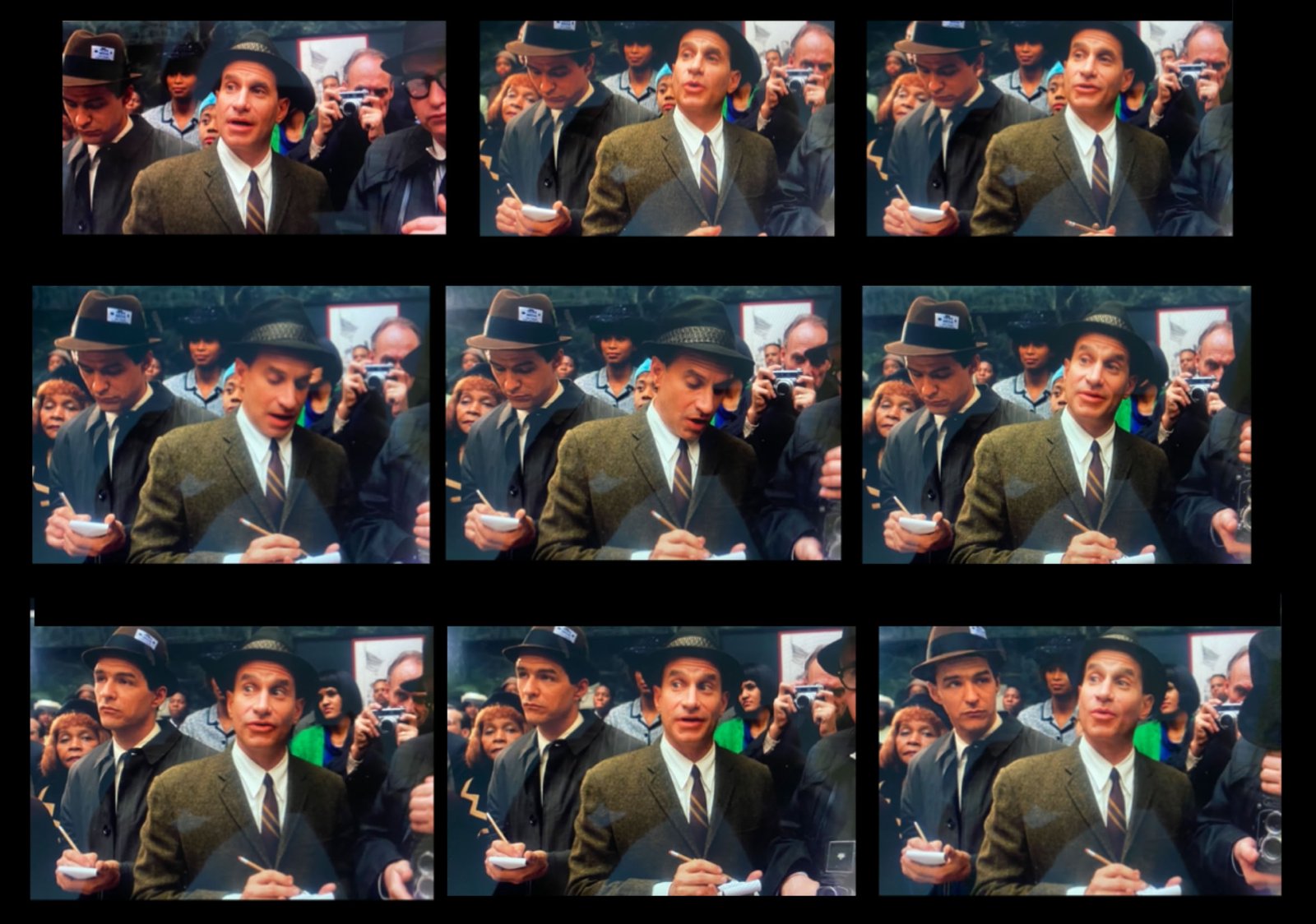
WRITER

Contact: mohanan@aol.com
100 Arden Street #5C
New York, NY 10040
(212) 645-0211
CONFESSIONS OF A FLOWER ADULT
A Memoir of Hippiedom
by Stephen Mo Hanan
Lorem ipsum dolor sit amet, consectetur adipiscing elit. Aliquam tincidunt lorem enim, eget fringilla turpis congue vitae. Phasellus aliquam nisi ut lorem vestibulum eleifend. Nulla ut arcu non nisi congue venenatis vitae ut ante. Nam iaculis sem nec ultrices dapibus. Phasellus eu ultrices turpis. Vivamus non mollis lacus, non ullamcorper nisl. Pellentesque habitant morbi tristique senectus et netus et malesuada fames ac turpis egestas. Phasellus sit amet
The gamble I made around 1970 didn’t even seem like one at the time, although the stakes were nothing less than my life. From today’s forty-year-plus perspective, it would be easy to call that gamble a mistake, but somehow I’m not convinced. I hope writing this book will lead me to a place of discovery, where the rekindled flame of those years in the Yellow House will shed light on what they ultimately were: either frivolity and madness, or a summons to greater sanity and wisdom.
But I get ahead of myself.
Hanan – CONFESSIONS - 2
JERUSALEM
1.
I showed up in New York at age thirty looking like a Biblical prophet: long wavy locks, abundant facial hair. A prophet who wore tie-dyed tunics, bell-bottom jeans and love beads. For most of the Seventies I’d been a San Francisco street performer. Though I shouldn’t presume to call my act unique, if there was ever another Harvard-educated Fulbright scholar who played concertina and sang for the crowds waiting to board the Sausalito Ferry, I haven’t met him.
For over six years I had been living communally in a compact pre-earthquake house a short stroll from Golden Gate Park at the western edge of Haight-Ashbury. I was the senior member, having outlasted housemates who stayed for more than three years, and others for barely a month. During my time the Yellow House had almost thirty occupants, though never more than five at a time. The individuals changed, but the peaceful, coöperative, nurturing vibe remained constant, offering welcome to all who entered.
( Well, mostly. The eviction of Emily and her baby “Pockets” comes further on.)
The Ferry provided my paying gig, but once I had a concertina repertoire of a few dozen songs at my fingertips, there was no shutting me up. I had a powerful and (evidently) pleasing voice that I enjoyed unleashing in show tunes, original songs and especially operatic arias. Introversion was never an issue. I serenaded Luciano Pavarotti at the stage door of the San Francisco Opera House (“Che bella voce!” he exclaimed and took me briefly under his hefty wing). I serenaded the opera lovers waiting in the lobby for standing room tickets, with no thought of passing the hat. On line like the rest, I just loved that rousing music and loved to send it forth, and if there was something incongruous about a shaggy wide-eyed hippie earning applause for belting Verdi with a squeezebox, I loved that, too.
But after years of hearing people tell me I should be on Broadway, at thirty it seemed time to give it a shot. Furthermore, my first play had been produced in San Francisco by the American Conservatory Theater and was scheduled for a New York reading at Joseph Papp’s place. It was my turn to be the departing housemate. I stored some stuff in boxes in the basement garage and boarded the Grey Rabbit bus for New York City.
Hanan – CONFESSIONS - 3
Once I discovered the standing room lines at the Metropolitan Opera House, they seemed a perfect lab to test whether New York would be as welcoming as my San Francisco home. On a sunny October morning I slung the concertina over my shoulder in its leather-strapped bag, and headed for Lincoln Center. I forget what the show was, but some hundred people were already standing in a line that snaked along the front lobby toward the shuttered box office window.
They were reading the morning paper, sipping hot beverages, chatting softly and amiably and wafting a low murmuring buzz around the lofty marble and glass foyer. I sized up the scene, took a few deep breaths, unbuckled the concertina bag, folded back the velvet lining and withdrew my instrument. I gave it a few silent tugs and squeezes to let it breathe, closed my eyes and mentally rehearsed my habitual pre-show invocation: “May this performance demonstrate the beauty, joy and freedom of the Holy Spirit.”
They were reading the morning paper, sipping hot beverages, chatting softly and amiably and wafting a low murmuring buzz around the lofty marble and glass foyer. I sized up the scene, took a few deep breaths, unbuckled the concertina bag, folded back the velvet lining and withdrew my instrument. I gave it a few silent tugs and squeezes to let it breathe, closed my eyes and mentally rehearsed my habitual pre-show invocation: “May this performance demonstrate the beauty, joy and freedom of the Holy Spirit.”
I was considering what to sing next when there approached an aged usher with a brass-buttoned crimson uniform and a colorless face, his small frame quivering with out- rage. “What’s dat supposed to be?” he barked. Without waiting for reply, he ordered me to put dat ting away and pipe down.
I contemplated him quizzically and the blonde woman said, “Oh come on, that was nice.” He ignored her and persisted in insisting that I desist. A tweedy fellow with a grad- student beard and then others nearby began to protest. The sentiment spread. But the dour old usher stayed relentlessly on message until voices from the back began to boo him.
“Ya see?” he lectured me, “ now yer creatin’ a distoibance.”
“Actually I’d say you’re the one creating the disturbance,” I suggested
He glared at me, his eyes frosty with veto, and said, “You can’t sing in here. Dis is an opera house!”
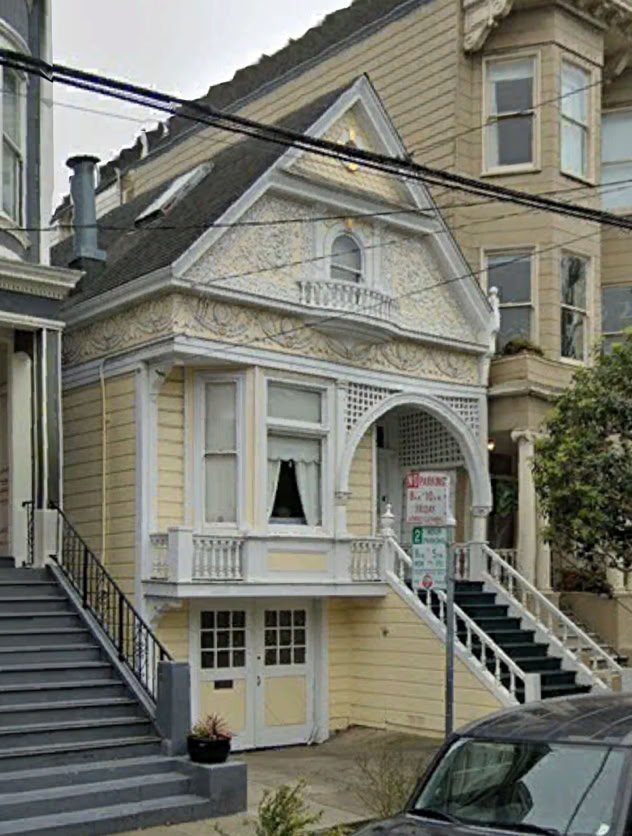
Hanan – CONFESSIONS - 4
2.
This was hardly my first clash with an authority figure who clamped down on mu- sic I was making in public. In my home town of Washington, D.C., I was arrested for singing and hauled off to a police lockup (it was the Nixon era). In Palenque, Mexico, my arrest by the local sheriff and his thugs was aborted by a mob of well-disposed townsfolk who rescued me, whisking me off to a secluded cabin that turned out to be a storehouse of magic mushrooms. (Turn the pages for more on altered states.)
The Palenque incident was a climax to some four months of backpacking across Mexico and Guatemala that began in December of 1973. The commune on Shrader Street had reached a plateau of smooth running that easily would continue without me (or so I was eager to believe), and I’d made enough money that summer and fall at the Ferry to take off until spring brought the tourists back.
On a good weekend at the Ferry, from April through October, passengers for Sausalito would start lining up about half an hour before departure. The old terminal at the foot of Market Street funneled ticket holders into a long passageway, walled to a height of four feet, with a blue-and-white striped awning for shade. It led to the gate where at loading time they surrendered their tickets and boarded the boat.
Facing this captive audience, in bright sunlight, was an empty asphalt lot in which for years I cavorted around, singing a cappella (at first) or improvising (initially) snappy patter. With each fresh boatload the bills and coins and occasional contraband would pour into my upturned hat, at intervals of ninety minutes four or five times a day. A good weekend added up to anywhere between two and three hundred bucks. This at a time when my share of the rent was fifty-five dollars a month.
If I’d been paying taxes in those days I might have written off the Mexico trip as a business expense. From the live recording a friend made of the act that summer (he brought his eight-track recorder down to the Ferry), it was obvious that some kind of ac- companiment would help to anchor my renditions of famous ditties that too often drifted into unforeseen keys. I had never learned to play an instrument, could barely read music beyond a fourth-grade level, but had a good ear. And then the perfect solution, a concer- tina, portable and picturesque, came my way for a paltry fifteen bucks. But it soon be- came clear that San Francisco’s endless distractions would hinder my learning to play it.
ANCESTRY




some reviews:
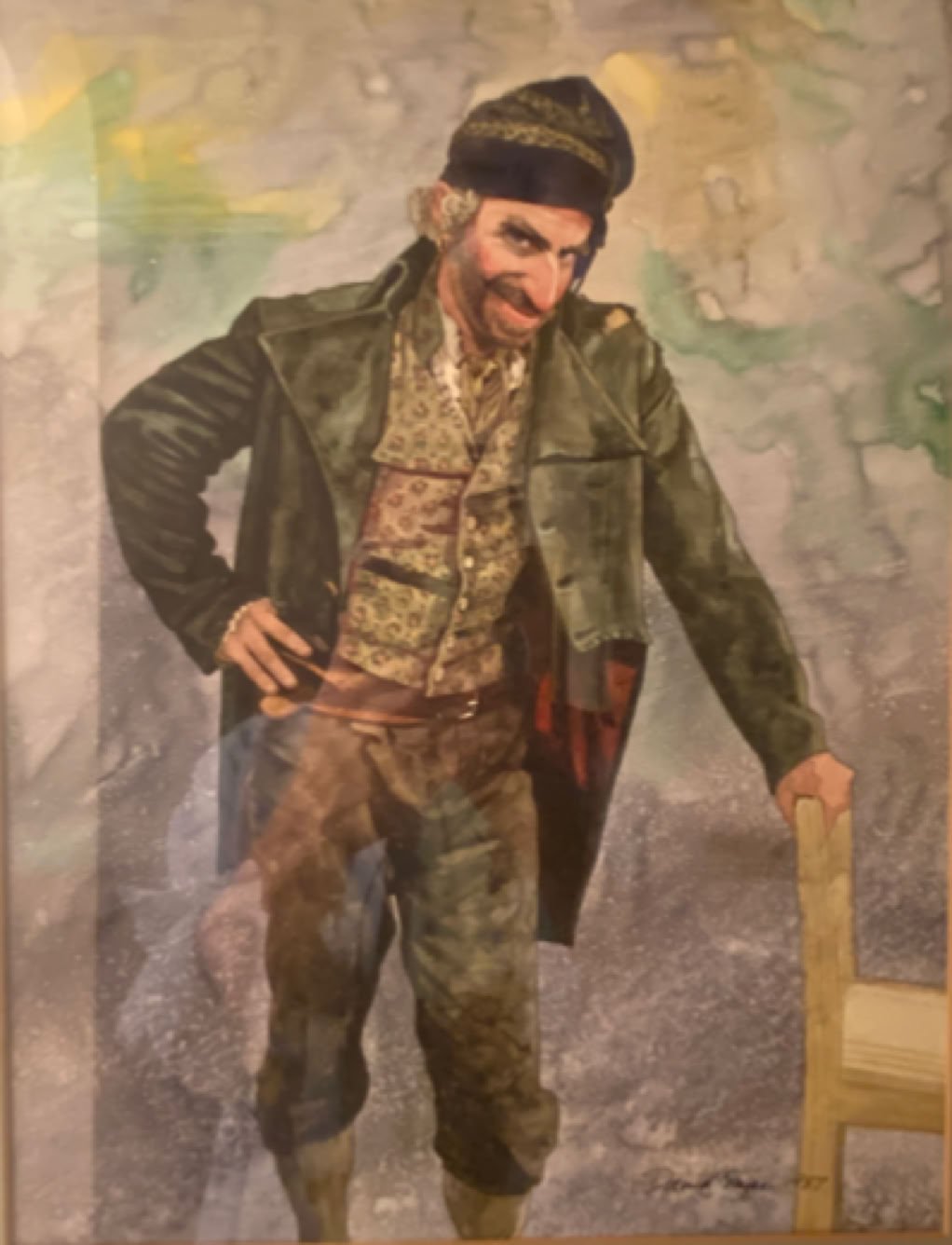
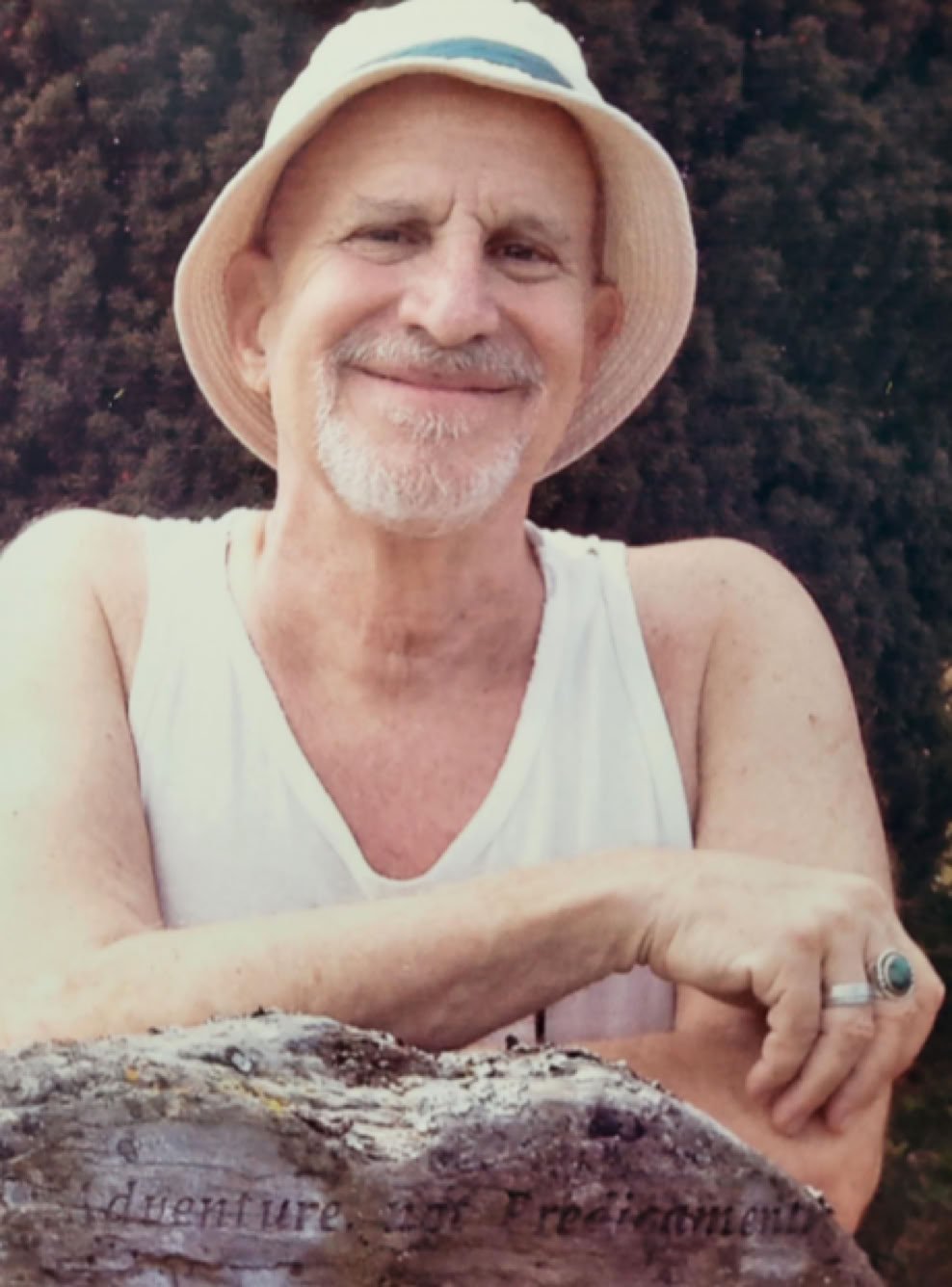
some pics
